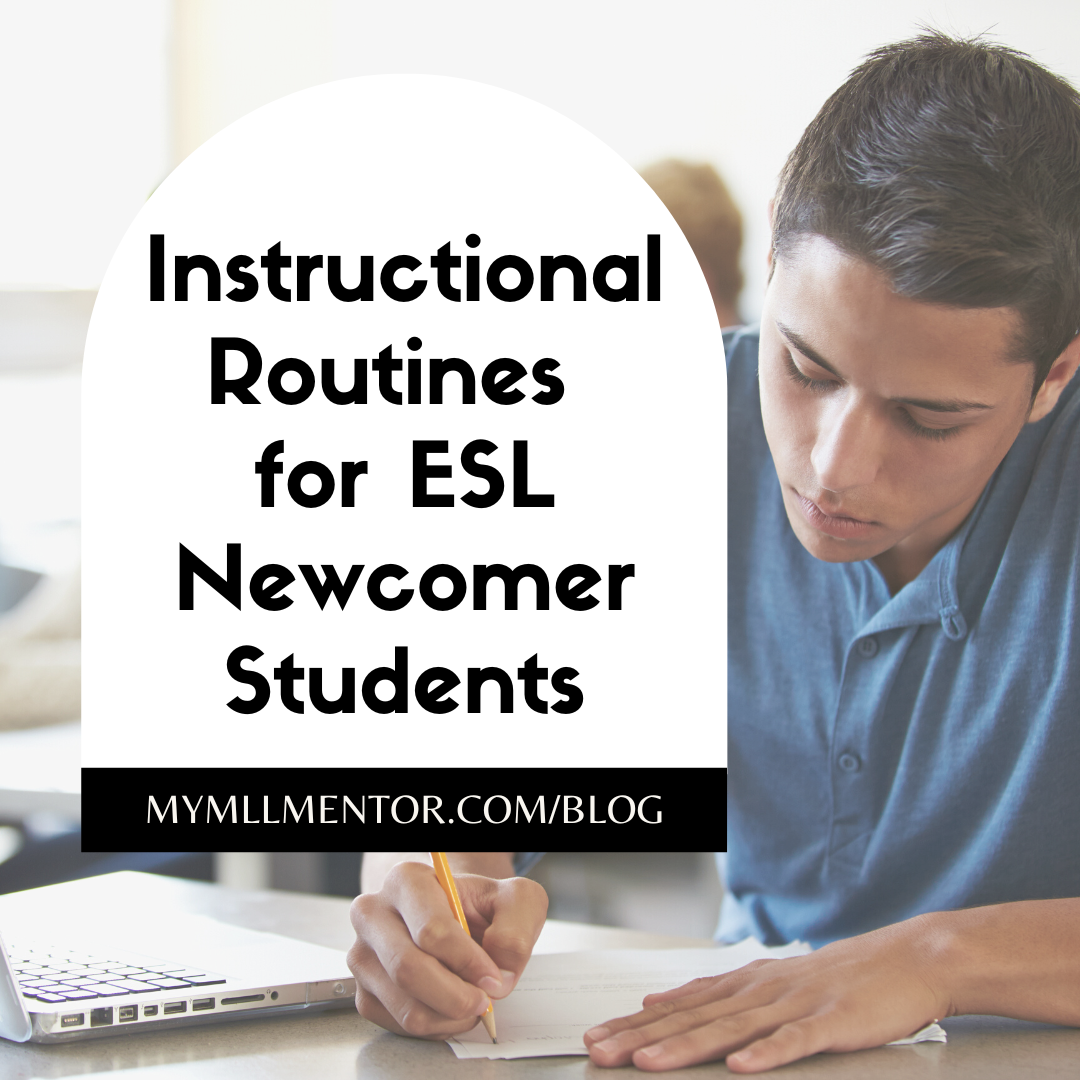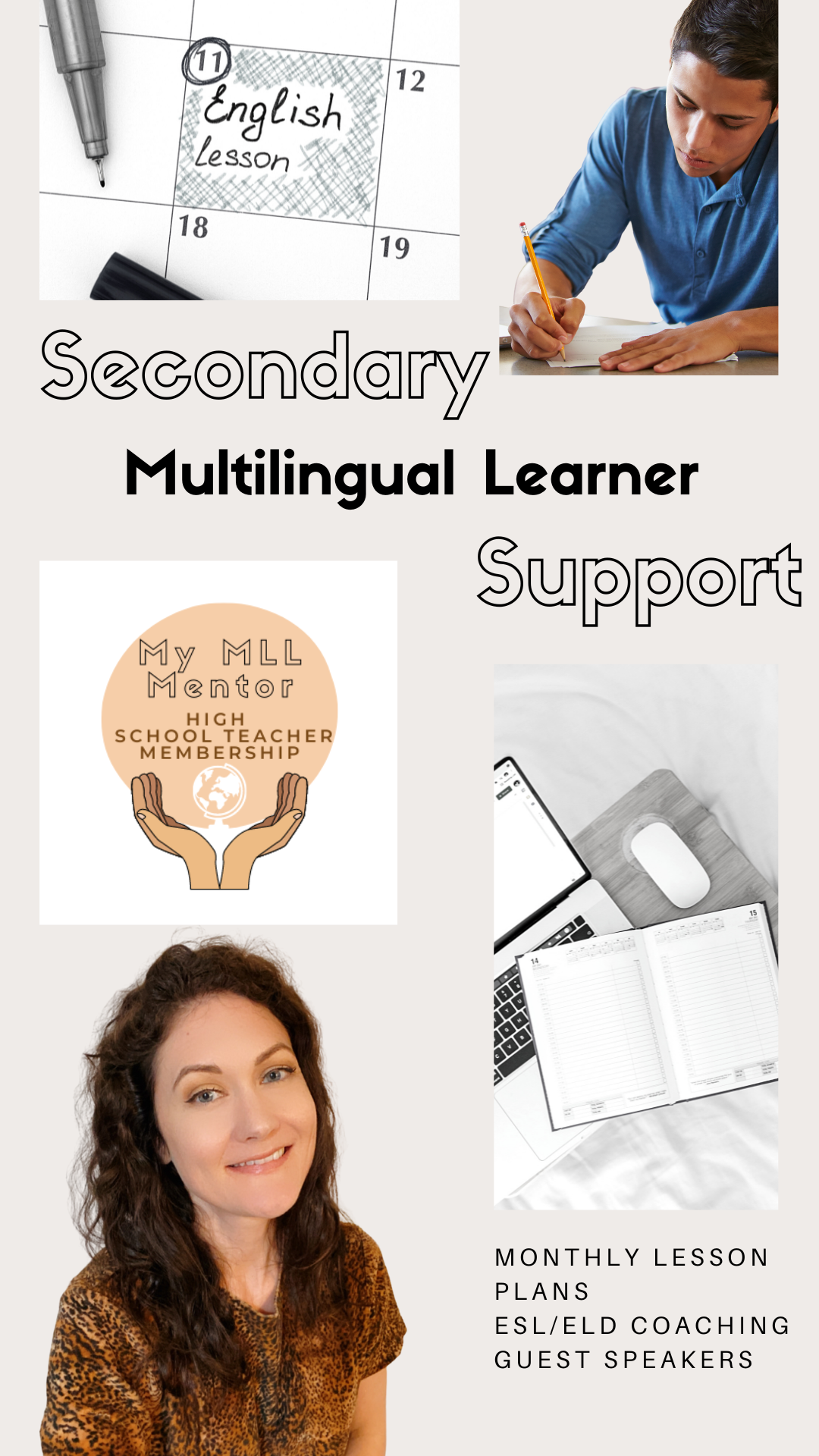|
In our first month of the My MLL Mentor Membership in June, we were so lucky to have Dr. Margarita Calderon as our first guest! I love her ExC-ELL strategies, especially her 7-step vocabulary process. She let us know how we could differentiate vocabulary in the process for our newcomers and I added in a couple of my tips as well. Let's check them out!
1. Leave out the dictionary definition. I have been using the simpler version from learnersdictionary.com, but Dr. Calderon says to just leave it out! No problem; less planning on us, right? 2. Leave out the grammar. In her 7 steps, looking at the word study is part of it. This means pointing out what part of speech, if there are multiple meanings, any grammar forms (present vs. past), etc. Leave it out, teacher friends! I may leave it in if I know it's a cognate and they understand what it is in their home language, but other than that I am excluding it. 3. Make it student-friendly. For your example sentence, you want to make sure that it is student-friendly and comprehensible. This meas that maybe you want to connect it to the visual you also provide to help them understand your example. 4. Include translations. I didn't specifically ask Dr. Calderon about this, but I like to include a translation of the word when I introduce it, nothing else. It could mean a couple of extra steps of work if you have multiple languages in your class, but especially at the beginning when they first arrive, I find it is very helpful and also lets them know that I value their language. 5. Include speaking. For one of the last steps, it's important to get students engaging with the word in speaking. She was pretty specific about not having them write, just having them talk. I like to include sentence stems or frames with visuals and have them do quick chats with partners. 6. Make it short and sweet. This whole process for one word should only take 1-2 minutes and she recommends 5-7 daily. This can be done in your "I do" part of your lesson after bell work. This is just an introduction to the words- they should be practiced throughout the lesson and returned to throughout the year. Don't forget about them! I like to make Quizlets and assign them for homework or bell work. Don't be afraid to pull out sets of words from a couple of months ago! There you have it! Short and sweet. And if you need more ideas on addressing language at the word level, check out my online course, My EL Mentor: Creating a Language-Rich Classroom.
0 Comments
Leave a Reply. |
AuthorI support middle and high school teachers through monthly lesson plans, coaching, and guest speaker offerings in our Secondary ESL Teacher Membership. Archives
April 2023
Categories
All
|


 RSS Feed
RSS Feed
